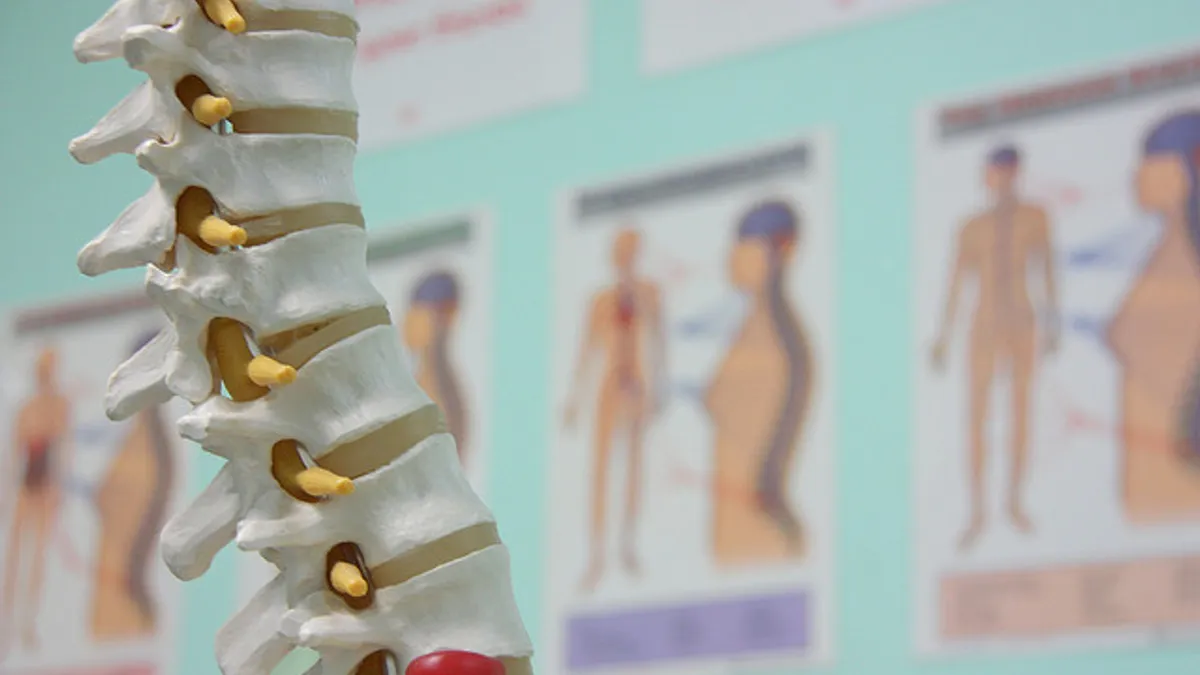Dive Brief:
-
Pure-play spine medical device manufacturers continued to take market share from Johnson & Johnson and, in particular, Medtronic in the fourth quarter of 2018, according to analysts at RBC Capital Markets.
-
The analysts found Globus Medical, NuVasive and Stryker’s K2M were the biggest beneficiaries of the share shift, which occurred in the fastest quarter of spine market growth since 2015.
-
Medtronic was unable to capitalize on the growth, resulting in its spine business posting flat sales that fell just short of analyst expectations.
Dive Insight:
Over the past two years, control of the spine market has shifted from medtech giants that play in an array of sectors to specialists. The trend accelerated in the back half of 2018, and particularly in the last quarter, resulting in a full-year share swing toward pure-play companies that was comparable to that seen in 2017.
RBC identified Medtronic as the company that lost the most ground in the fourth quarter. Spine sales in Medtronic’s most recent financial results came in at $655 million, just below analyst expectations, meaning performance was flat on a constant-currency basis.
Medtronic’s performance contrasts with the broader market. The RBC analysts calculate the spine market grew 3.5% on a constant currency basis, making the fourth quarter the best for the sector since the first half of 2015. The strong performance reflects the relatively weak sales seen 12 months ago, meaning the 3.5% growth came off a low base, and rising demand outside the U.S.
Sales in international markets grew 6%, twice as quickly as they did across 2018 as a whole. Growth in the U.S. market also accelerated in the fourth quarter but only to 2% from a full-year rate of 1%. RBC expects growth in the U.S. market to accelerate slightly over the coming year.
With RBC predicting the global spine market will grow 2% in 2019, companies will need to gain share from their competitors to significantly increase sales. The market trends seen over the past two years suggest Globus, NuVasive and K2M are best placed to capture share from J&J and Medtronic but the medtech giants may be able to fight back in 2019.
Speaking to investors this week, Medtronic CEO Omar Ishrak predicted sales of his company’s spinal implants will increase in the coming quarters. The optimism reflects a belief that Medtronic’s Mazor X Stealth Edition, which came to market last month, will increase demand for spinal implants.
That hypothesis is central to Medtronic’s plans to return its core spine business to growth. Mazor X Stealth Edition is a robotic spinal surgery system Medtronic acquired in its $1.6 billion takeover of Mazor X. As sales of neurosurgery capital equipment, such as the Mazor X Stealth Edition, grew more than 30% in the most recent quarter, Ishrak predicted improved spinal implant sales are coming.
“We believe our strong capital equipment sales supporting our Brain Therapies growth are a leading indicator for future growth in our Spine business as customers choose to link future spine implant purchases with capital equipment that they're requiring,” Ishrak told investors.
If Ishrak is right, the pendulum could swing toward diversified giants that can provide robotic systems and accompanying devices as a package. Both Medtronic and J&J have invested heavily in robot-assisted surgery, although some of the money has gone toward applications far removed from the spine market.











